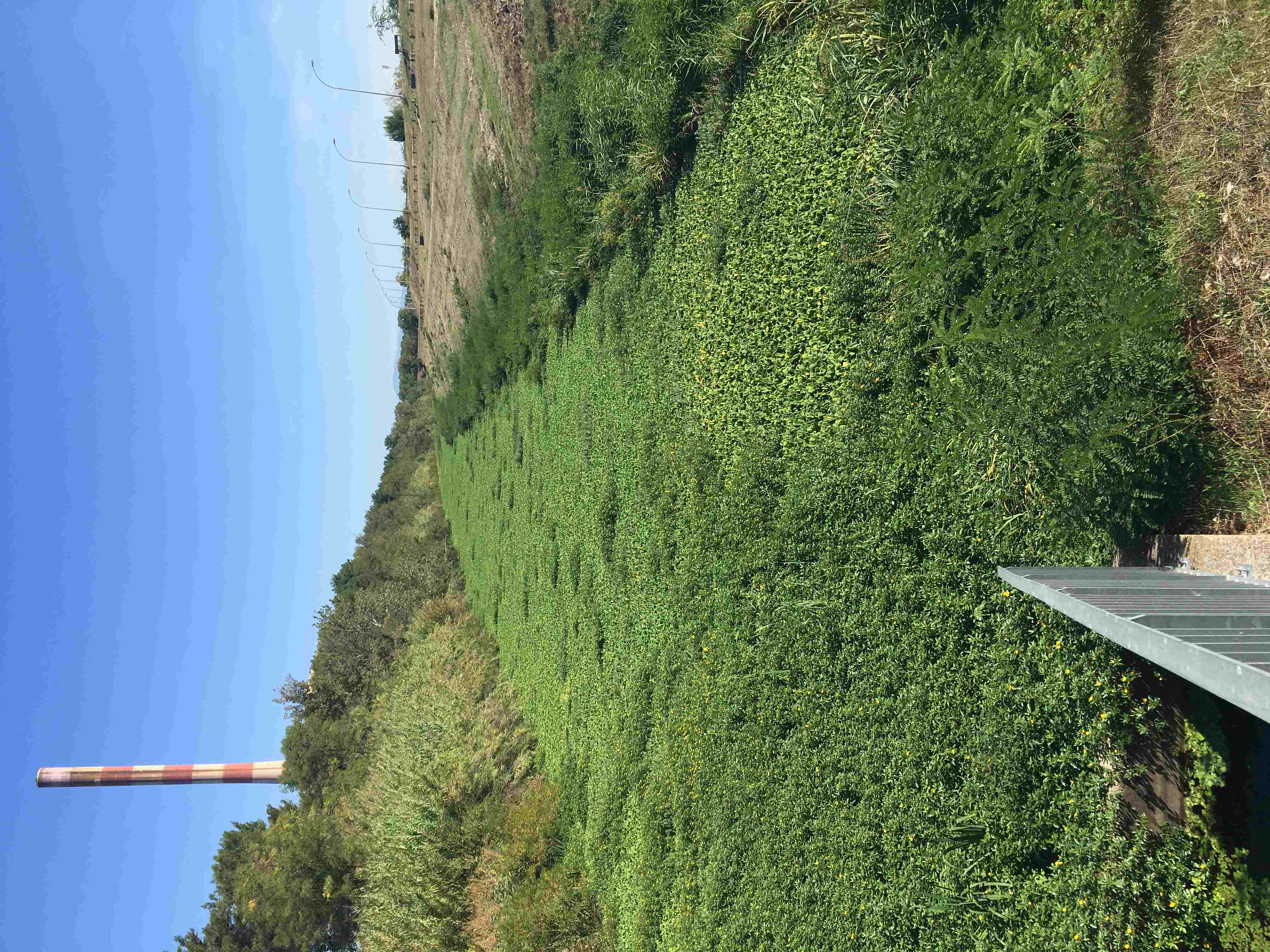‘Eaux végétales’ (‘Plant waters’), a project located in the Occitanie region of France, is proposing the full-scale testing of a new pollution management system for water contaminated with heavy metals. The project has turned laboratory research results into a pilot demonstration of technology chosen for decontaminating water, taking into account climate hazards. A company has been formed based on this project, in order to industrialise the process of decontaminating water using plants.
- 27 May 2021
The project has been a great success, with notably the creation of a company based on the results of research on filtering out pollutants using plants.
There are many old abandoned mines in the region. The mines of the Cévennes, in particular, perfectly illustrate the contamination of rivers by zinc, cadmium, lead and arsenic.
In Gard, where rain is rare but heavy, some twenty locals filed a complaint regarding the consumption of water contaminated with Pb, Cd and As. All of these problems are due to the difficulties in managing water from zinc mines. The groundwater tables have in fact been exposed to contamination by effluents from mining facilities for fifty years.
To resolve this problem, a consortium of partners with complementary activities has come together. It is led by the Bio-Inspired Chemistry and Ecological Innovations Laboratory, or ChimEco (CNRS and University of Montpellier), which has developed a technology for removing pollutants from water using plants, and Klorane Botanical Foundation, which is promoting the process developed.
The Compagnie National du Rhône (CNR) and two joint associations for the development and management of water catchment areas (EPTB Gardons and SM Ganges-Le Vigan) have become involved to collect invasive aquatic plants and study their potential for use in the process. Finally, the Fondation Suez has chosen to help fund the project as part of the ‘Acting for Water Resources’ programme.
Plant filter
The project itself involves using a plant filter made up of modified plant powders to eliminate the pollutants Zn, Pb and Cd before discharge. The filter consists of plant materials made functional by a bio-inspired process, patented by ChimEco-CNRS. The process is unique at international level and is aligned with European and global priority objectives.
In terms of short-term results, the proposed solution is to intervene upstream and trap contaminated water as soon as it forms. To this end, the project leaders have implemented ecological treatment of polluted water as it drains from adits, at an experimental mine site. This treatment consists of passing the contaminated water through the laboratory-developed plant filter.
The plant filter is based on the use of an endemic plant with proven efficacy. Current results show that invasive exotic plants can be used. A massive harvest of exotic plants, dehydrated and crushed into powder, has been used for this project. This solves two problems: it helps to eradicate an invasive plant, and it decontaminates mine water.
Convincing results and start-up created
In the long term, the results obtained could easily be used to benefit other regional sites, then national and international sites. The generality of the process makes it usable in these different contexts and justifies the creation of a start-up dedicated to producing the plant filter.
Total investment and European funding
Total investment for the ‘Turning plants into pollution filters’ project is EUR 2 866 200; the European Regional Development Fund contribution amounts to EUR 1 433 099 under the ‘ERDF-ESF Languedoc-Roussillon’ operational programme for the 2014–2020 programming period. The investment falls under the priority of ‘Improving risk prevention (floods and coastal risks) and promoting biodiversity’.

